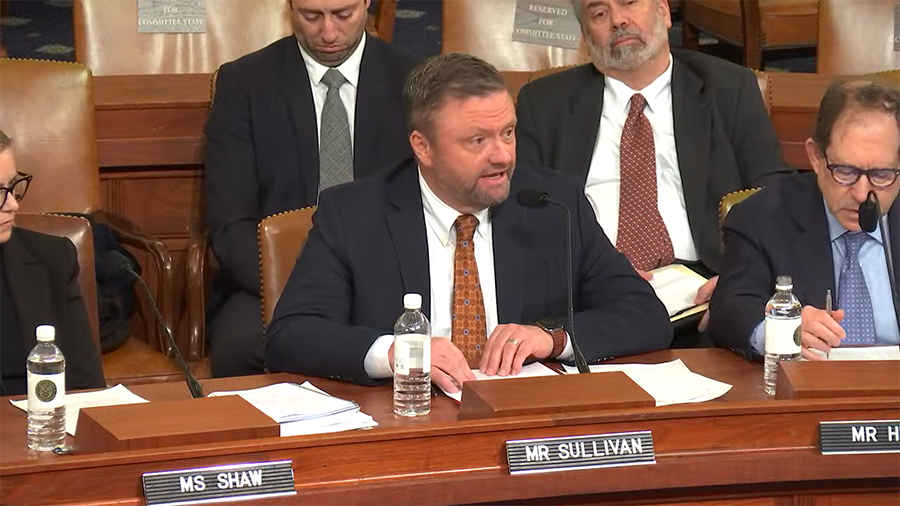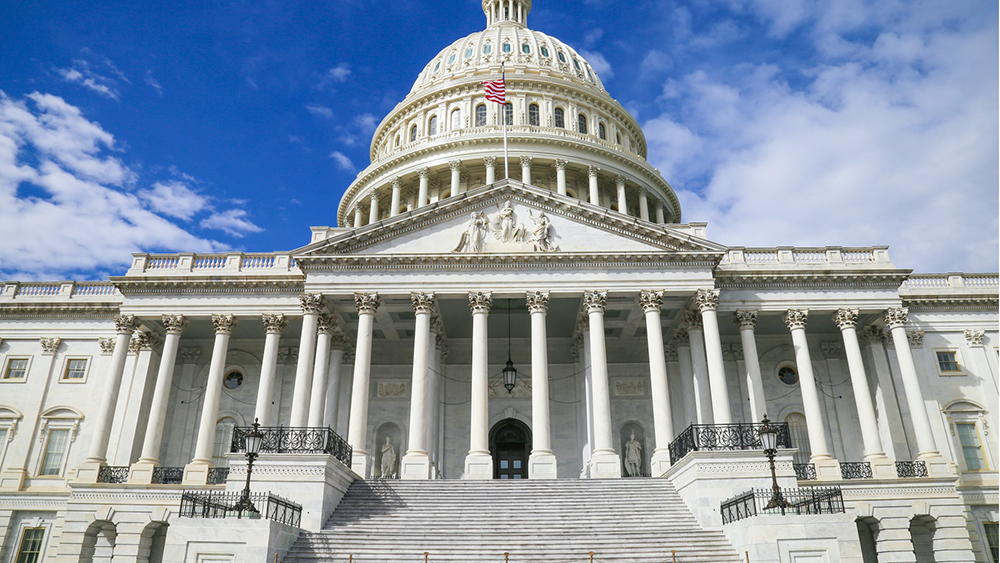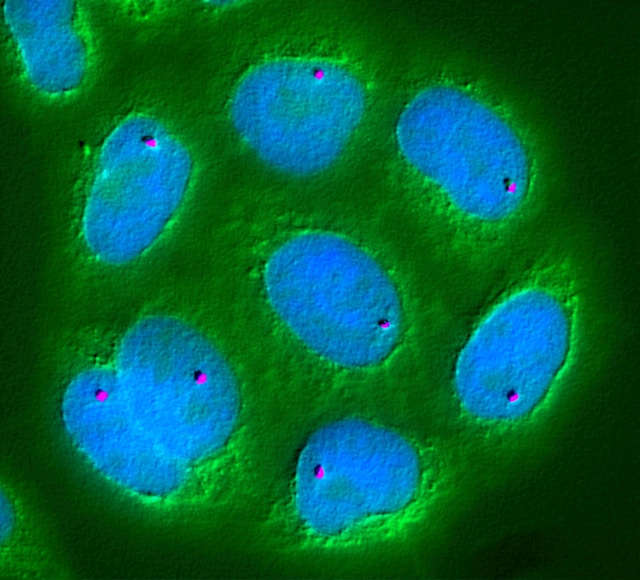A proposed World Trade Organization (WTO) IP waiver could have scuttled investment in biotech’s new diabetes drug and already impacts the firm’s decisions about research spending, a member of the board of the Biotechnology Innovation Organization (BIO) told Congress on Feb. 7.
In testimony before the House Ways and Means Subcommittee on Trade, Eddie J. Sullivan, co-founder and President of SAB Biotherapeutics and a BIO Board member, said the mere threat of a proposal to waive WTO protection of IP for COVID-19 therapeutics and diagnostics is already negatively affecting his company, and the entire biotech industry.
The proposed waiver of WTO’s Trade-Related Aspects of Intellectual Property Rights (TRIPS) agreement is on the agenda for the 13th Ministerial Conference of the WTO, taking place Feb. 26-29 in Abu Dhabi. The U.S. Trade Representative (USTR) has not yet taken a position on waiving IP rights for COVID-19 diagnostics and therapeutics. However, in 2022, they agreed to waive TRIPS IP protections for COVID-19 vaccines. The Feb. 7 House hearing intended to investigate the current proposed waiver and advise USTR.
As Sullivan and others pointed out, the vaccine waiver—which no country has utilized—proved unnecessary to ensure global vaccine distribution. The new waiver would do more harm than good regarding expanding access, he said.
“There is no objective evidence suggesting a waiver of IP rights would do anything to improve access to COVID-19 therapeutics around the world,” said Sullivan’s testimony as submitted for the hearing. “Rather, a waiver of IP rights would significantly disrupt the economic model by which innovative biotech startups like SAB Biotherapeutics have successfully advanced medical science to meet global health challenges, create jobs, and maintain our country’s leadership in this critical field.”
Members of Congress at the hearing also maintained that the waiver would be damaging.
“I strongly opposed the waiver of IP rights for COVID-19 vaccines,” said Subcommittee Chair Adrian Smith (R-NE). “To make matters worse, the administration is considering whether to expand that waiver to the IP for diagnostics and therapeutics. Such a move would be as harmful as it is illogical.”
WTO IP waiver threatens small biotechs
Sullivan described the challenges faced by his own company as typical for innovative biotech SMEs.
SAB Biotherapeutics is developing next-generation human polyclonal antibodies that promise to increase the safety and effectiveness of antibodies. The firm uses a proprietary platform, protected by several patents, to develop “antibodies to treat and prevent infectious diseases, immune and autoimmune disorders, and oncology.”
“SAB’s platform represents, for the first time, the ability to produce targeted, fully human, high-potency polyclonal therapies on a commercial scale,” Sullivan explained.
The platform, which is protected by several patents, is currently being used in collaborative research designed to help combat COVID-19. A waiver of patents related to COVID-19 work could impact SAB Biotherapeutics’ entire antibody development platform.
“An agreement to waive IP rights for COVID-19 therapeutics at the WTO would needlessly expose our company’s IP assets protecting our platform technology which we are using to develop treatments for COVID and for other potential infectious diseases, immune and autoimmune disorders, and oncology,” Sullivan testified.
SAB Biotherapeutics recently announced “a private placement investment of over $100 million in our company to advance a disease modulating immunotherapy SAB-142 to delay the onset and/or progression of Type 1 Diabetes,” with a Phase 1 clinical trial already commencing, Sullivan said. “If we would have had to disclose a waiver of our IP rights to our COVID-19 portfolio it would have put our company at serious risk of losing a major investment because the waiver would have also exposed all COVID-19 associated IP assets which would have included our novel platform.”
WTO IP waiver threatens the industry
The threat a TRIPS waiver poses for SAB Biotherapeutics’ IP portfolio is faced by many biotechs, Sullivan explained. Companies must alter decisions about how they will allocate future R&D capital and how they approach the investor community. The threat can discourage investment, “especially from pre-revenue early-stage biopharmaceutical companies whose most important assets are their IP,” he said.
Investor concerns are already impacting investment. “Stock prices of SME biotech firms that have invested in COVID-19 related R&D have on average suffered more (-73 percent) than the average stock in the U.S. (-5.4 percent) and more than the average SME biotech company not working on COVID-19 related R&D (-55 percent) since February 2021,” he testified.
Along with preventing the pursuit of innovative treatments, the threat of a waiver also harms a vital segment of the U.S. economy.
“The innovative U.S. biotech sector” directly employs 2.14 million, and contributes 10.3 million additional jobs. It has a $2.9 trillion impact on the U.S. economy, Sullivan said. “Reduced investment, brought on by increased risk to underlying IP assets, will affect research and manufacturing jobs in the United States and undermine our ability to harness the innovative potential of the U.S. private sector to timely and robustly respond to future global public health challenges.”
Congress members concur
“Unbridled enthusiasm as we have seen with the TRIPS waiver leads to unbridled disaster,” said Rep. Greg Murphy, M.D. (R-NC). “I can’t think of anything more destructive than the TRIPS waiver for American innovation.” He added that weakening IP rights is not only harmful to business. “It is an absolute national security issue.”
Rep. Brad Schneider (D-IL) credited strong IP protections with enabling the United States to lead in the fight against COVID-19. “I’m proud of the fact that as the world looks for inoculations for vaccines for COVID, it’s the U.S. who led that way. And as the world looks for treatments, it is the U.S. that continues to lead the way,” he said. “It’s our intellectual property system.”
“Recent independent analysis by the International Trade Commission (ITC) found that IP is not a barrier to access for COVID-19 treatments,” said Chair Smith, referring to a report by the USITC.
Sullivan agreed.
“With news of the WHO declaring the end of the COVID-19 public health emergency on May 5, 2023, and with global supply of therapeutics far exceeding demand, a waiver is wholly unnecessary,” said Sullivan. It’s obvious the proposed waiver is not based on public health concerns, he added. “Rather, the debate suggests that proponents of the waiver are keen on leveraging the COVID pandemic to achieve a goal that has been decades in the making—the radical undermining of the existing global IP rights system.”




